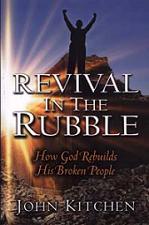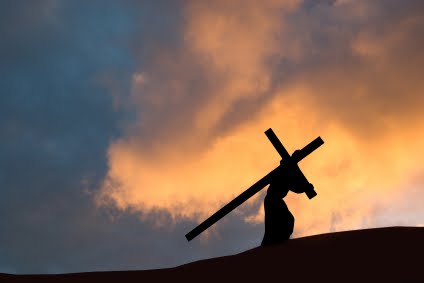“Rejoice, O young man, in your youth, and let your heart cheer you in the days of your youth. Walk in the ways of your heart and the sight of your eyes. But know that for all these things God will bring you into judgment. Remove vexation from your heart, and put away pain from your body, for youth and the dawn of life are vanity. Remember also your Creator in the days of your youth, before the evil days come and the years draw near of which you will say, ‘I have no pleasure in them.'” (Ecclesiastes 11:9-12:1)
Month: April 2015
 Through May 15 you can get Revival in the Rubble for just $3.90! That’s 70% off the regular price! You can by a single copy or purchase them in bulk. It makes an excellent group Bible study guide or Sunday School curriculum. You will need to order directly from the publisher. You can do so at www.clcpublications.com, 1-800-659-1240, or orders@clcpublications.com.
Through May 15 you can get Revival in the Rubble for just $3.90! That’s 70% off the regular price! You can by a single copy or purchase them in bulk. It makes an excellent group Bible study guide or Sunday School curriculum. You will need to order directly from the publisher. You can do so at www.clcpublications.com, 1-800-659-1240, or orders@clcpublications.com.
For electronic readers, you can purchase it now at Amazon.com for just $4.99 (62% off retail).
Help me spread the word!
What then is this thing, hope?
Its presence so easily presumed upon
Its price so consistently devalued
Its promise so seldom realized
What then is this thing, hope?
A whisper of another world
A herald from a King
A schematic of a future home
What then is this thing, hope?
Whose absence is hell
Whose advent is life
Whose actualization is heaven
What then is this thing, hope?
On a dark Saturday
After a Good Friday
On this day before …
What then is this thing?
“… through Him to reconcile all things to Himself, having made peace through the blood of His cross” (Colossians 1:20).
Paul has in view reconciliation not merely on a personal, but a cosmic level (τὰ πάντα, “all things”). The same expression was used three times in verses 16 and 17 to depict, as it does here, “the whole of creation” (BAGD, 633). The totality of created reality is in view. Something happened upon that cross on that Friday that was reality-altering for everything, everyone, everywhere, for all time.
There the Father moved to reconcile “to Himself” (εἰς αὐτόν) an entire creation that had been hurled into opposition against him. “The creation was subjected to futility, not willingly, but … in hope” (Romans 8:20). The realization of that hope was purchased on the cross. For it was there that God the Father “made peace” (εἰρηνοποιήσας) by bringing wrath—not upon our rebellious race and the creation we’ve taken with us into chaos, but by bringing His wrath upon His own Son whom He appointed to stand in our place. The peace-making tells us how the reconciliation was effected. Through our autonomy we made war on God, through His obedience Jesus made peace for us with God.
The means or instrument (διὰ) employed by the Father (at His good pleasure, v.19) to make that peace was “the blood of His cross” (τοῦ αἵματος τοῦ σταυροῦ αὐτου). The blood of Christ effected propitiation (Romans 3:25), justification (Romans 5:9), redemption, the forgiveness of our trespasses (Ephesians 1:7), and, as here, reconciliation (Ephesians 2:13). It is the ground of all the blessings of the new covenant the Father extends to us in Christ (1 Corinthians 11:25).
When Paul speaks of Christ’s blood he is using a figure of speech known as metalepsis. Thus, in the first place, “blood” stands for blood-shedding (i.e., the death of Christ). Then, secondly, Christ’s death stands for the full and complete satisfaction which is made by it and for all the merits of the atonement which is brought about by it. Thus, says Bullinger, to speak of the blood of Christ “means not merely the actual blood corpuscles, neither does it mean His death as an act, but the merits of the atonement effected by it and associated with it” (610). The blood is called “of His cross” (τοῦ σταυροῦ αὐτου) because, of course, it was upon the cross where Jesus gave up His life in death to effect the singular event that would change all things forever.
Everything, everywhere, for everyone, for all time – “… this He did once for all when He offered up Himself” on that single cross on that single day so long ago (Hebrews 7:27).

